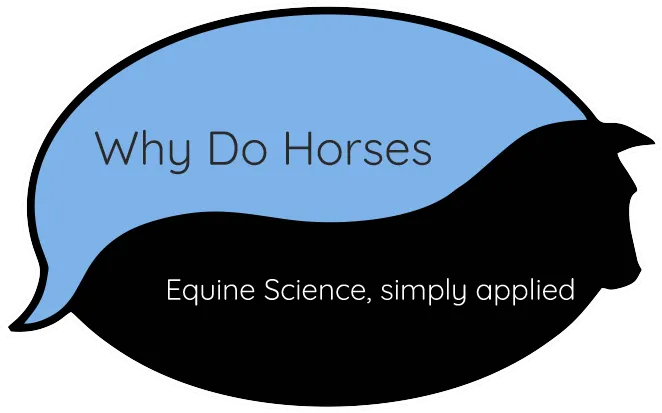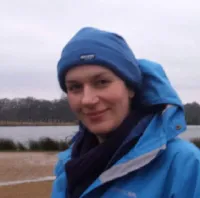Love Reading?
Articles
Find our blog posts and media articles all in one place!
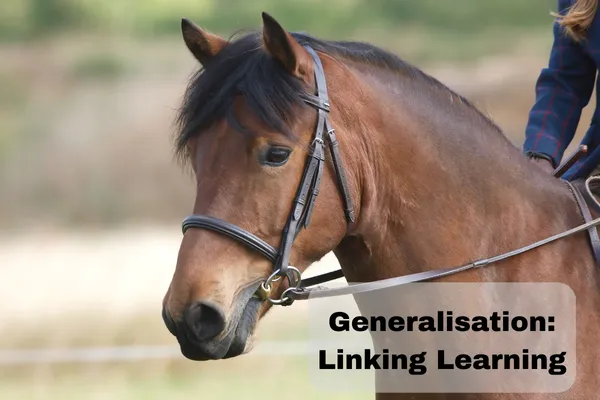
Generalisation: Linking Learning
One thing I notice clients getting stuck on is generalisation.... Either not doing it enough or forgetting to do it all.
Not sure what generalisation is? Let's talk about it!
👉Generalisation is the process by which the horse (or any other animal) learns to transfer the knowledge they've learnt in one context to other different contexts. 👈
Humans are very good at generalisation which is why we can often forget to go through this process when training our animals. For example, if I learnt to make a good cup of coffee at my Mum's house, it is highly likely that I will be able to apply that same learning when I get home. However, this isn't so for our horses.
Horses generally take 5 or 6 repetitions of a task in different contexts to then be able to transfer that knowledge to a variety of environments and contexts. This is also known as 'proof'.
Let's take an example. If a horse learns to trot from one cone to the another in the arena, it's quite possible that she will not be able to apply this same learning in the field, because the learning has not yet been generalised. However, by going through the process of generalisation, she can learn to apply the learning to a whole host of different contexts.

So, let’s first define what a context is and then we can look at ways that we can apply that to generalisation.
When horses (and other animals, including humans) learn a new task, everything within that environment becomes part of that learning - from the ground underfoot to the smell in the air. Changing the details within the environment changes the context slightly which is where the transfer of learning can fall apart. For example, if our mare learns to perfect a canter transition at the ‘C’ end of the arena, she may not immediately be able to apply that same learning to a canter transition at the ‘A’ end of the arena. However, by going through the same training process, we can teach her that the same learning still applies in this slightly different context - i.e. altered location. If our rider is fortunate enough to be at a yard with two arenas, a next step might be to train the same canter transition in the other arena, again separately at the ‘C’ and then ‘A’ ends of the arena.
Generalisation also works in the other way too. If a horse learns an undesired behaviour in one context, there's no guarantee that she will then perform that behaviour in other contexts because the learning has not become generalised. This comes with a caveat however - if the horse has learnt the undesired behaviour as a result of fear, that behaviour may become hardwired in the brain and so only take one practice of it to apply that response across different settings. This is known as 'one trial learning' - an important survival mechanism for horses.
Going back to our task learning, however. Here are 5 subtle context changes to take into consideration when applying generalisation to learning tasks:
➡️ Change in location - moving from one end of the arena to the other or even a different yard
➡️ Change in footing - retraining the same task in a field location
➡️ Change in weather - retraining the same task on a different day in different weather conditions
➡️ Change in handler - a different handler of the same sex
➡️ Change in sex - a different handler of the opposite sex
It’s worth writing out a plan for generalisation, slowly altering the contexts until your horse can apply the same learning in a variety of contexts. Remember, you may need to be prepared to retrain from scratch in each new context… at least until the process is complete.

Blog Posts Straight to Your Inbox!
What do clients say?
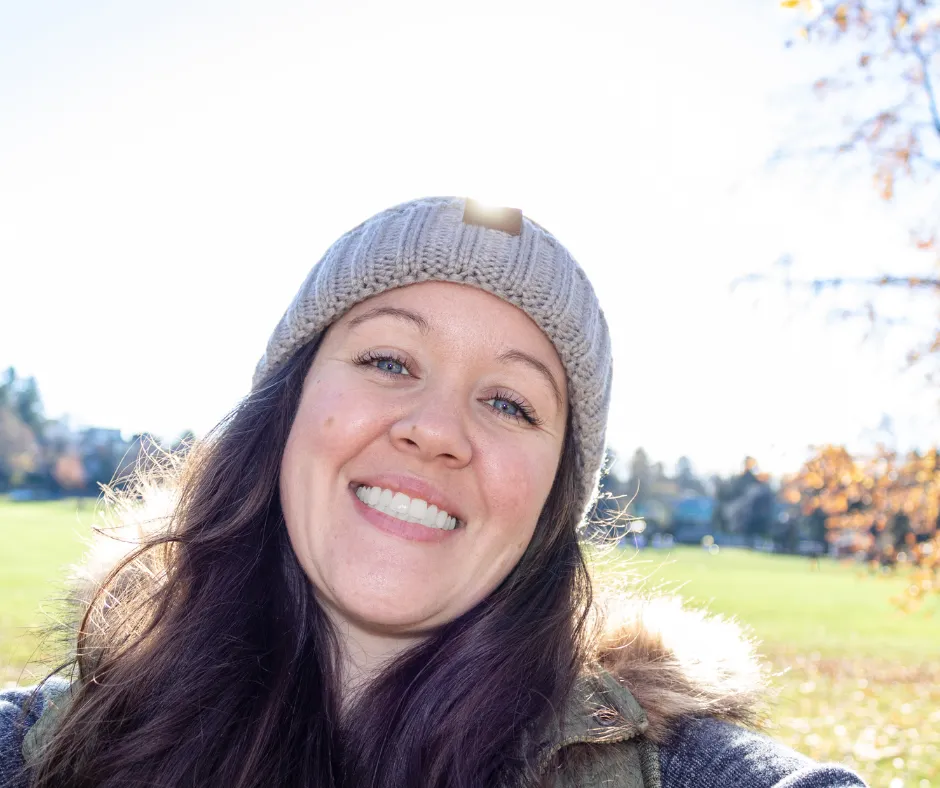
Amy D

We had an intro session on clicker training with Louise, it was fabulous, very informative. After reading up about clicker training and getting a bit confused with all the different approaches, Louise made it very clear and explained it all thoroughly.
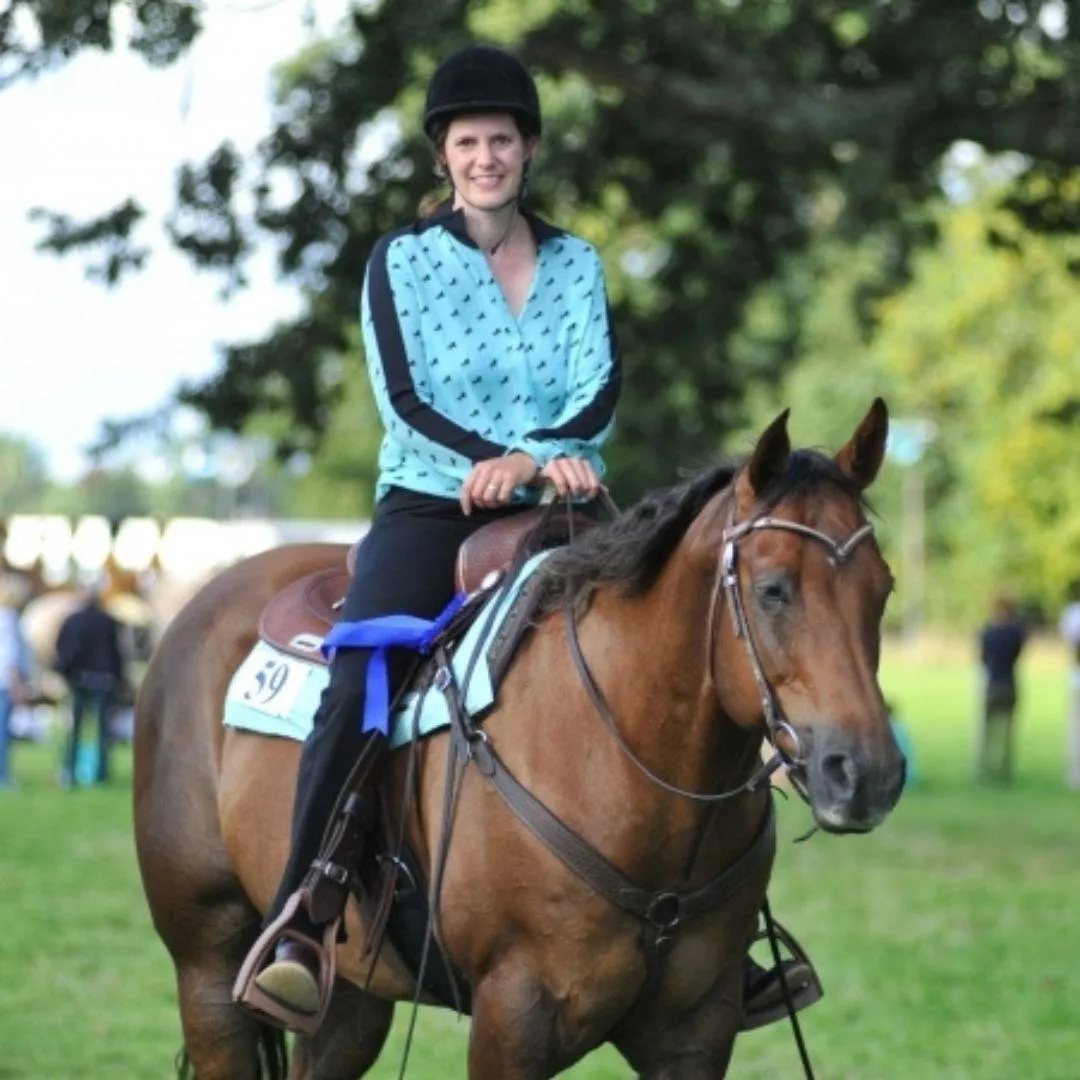
Eiddwen S

I contacted Why Do Horses for help with issues I was having travelling my horse. During our sessions I found myself wanting to learn more about equine behaviour and body language and I have realised I was missing a lot of knowledge. Why Do Horses have changed my entire outlook on horse training and behaviour, this is something for which I will be forever grateful!
